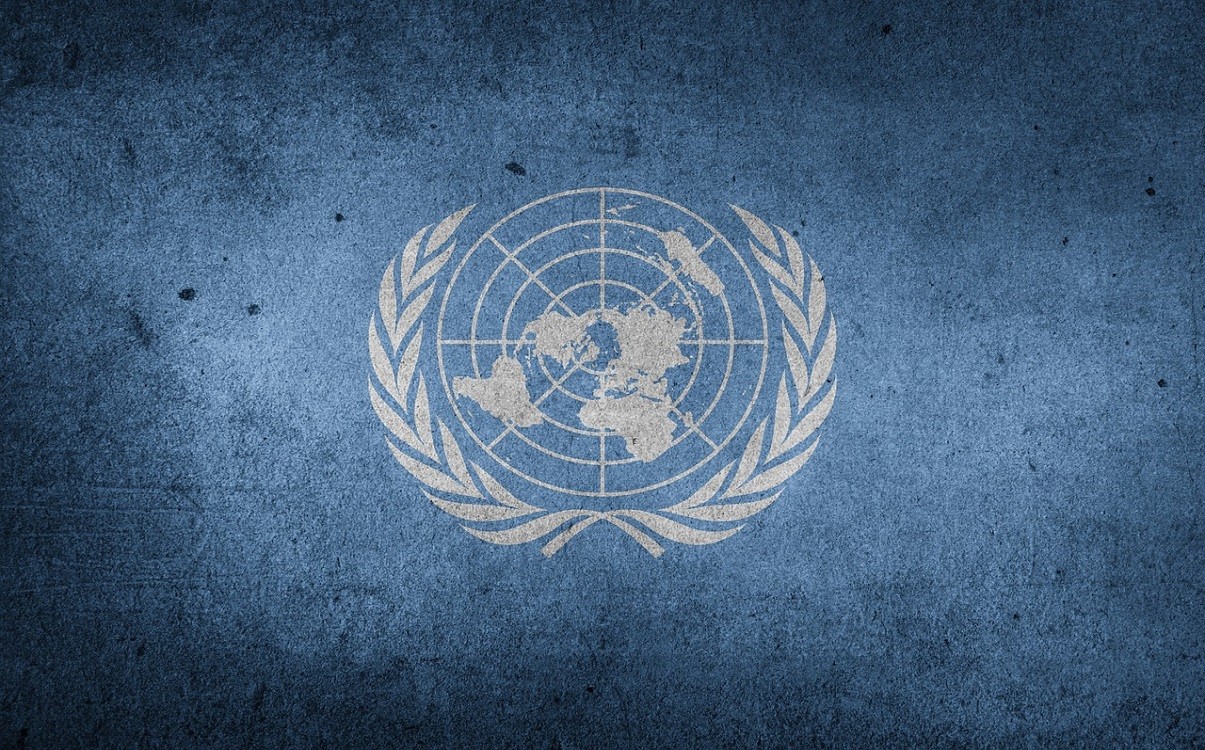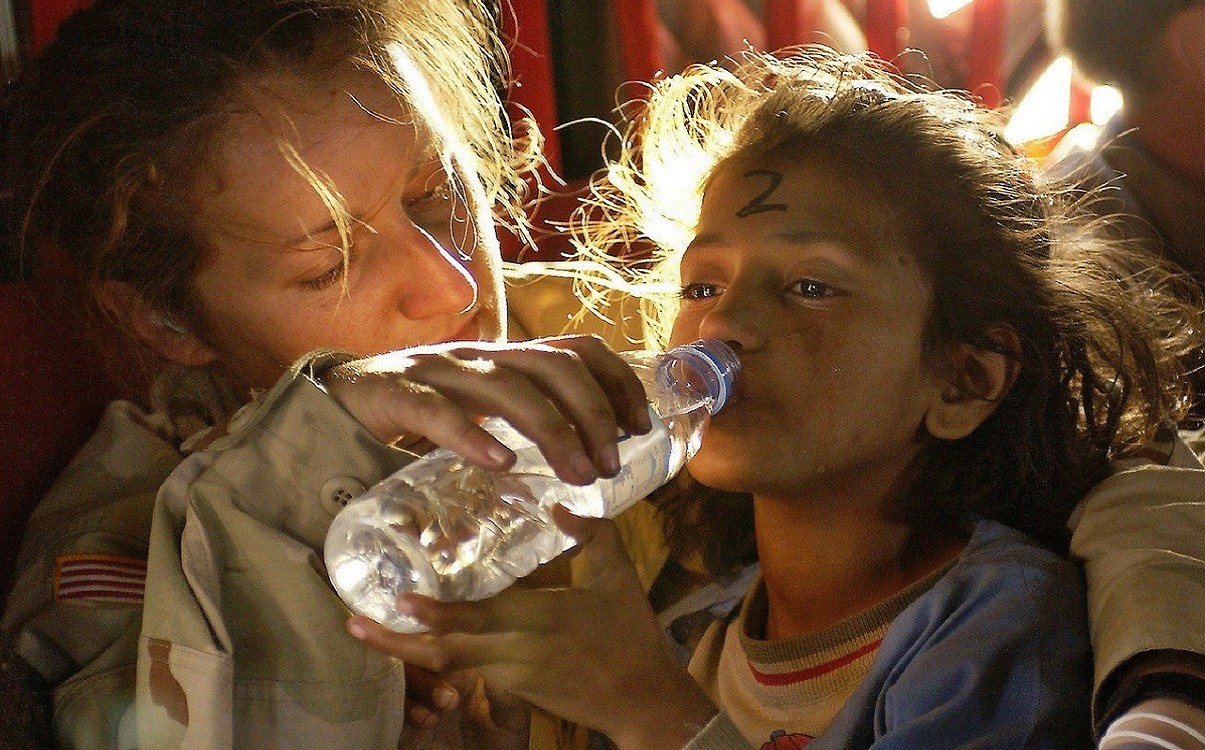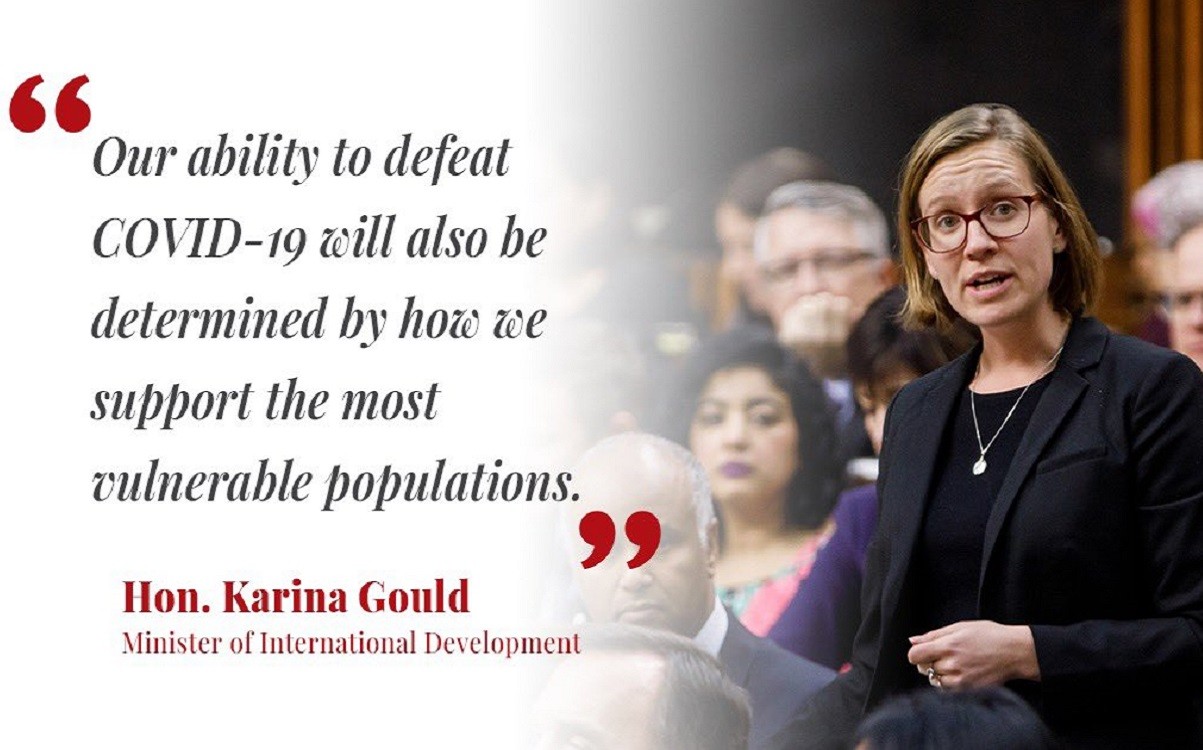The Government of Canada commits $159 Million to fight the COVID-19 global pandemic.
On February 11, 2020, the Government of Canada provided $2 million to the World Health Organization to help vulnerable countries prepare and respond to COVID-19 events.
On March 11, 2020, the Government of Canada announced $50 million to support the efforts of international assistance partners to prevent and respond to COVID-19. This announcement included $8 million, which was allocated to the World Health Organization, the Pan American Health Organization, the United Nations High Commissioner for Refugees and the International Federation of Red Cross and Red Crescent Societies.
The funding being provided by Canada will support the provision of medical supplies and services; increase water, sanitation and hygiene services; enhance public information on COVID-19 risk mitigation, and help strengthen local capacity to scale up for the response.
The COVID-19 pandemic continues to remain a global threat that does not recognize borders and can only be overcome through coordinated action all around the world. Canada continues to contribute to international efforts to address the ongoing pandemic by providing urgent and necessary funding, including to support those who are most vulnerable.
Today, the Honourable Karina Gould, Minister of International Development, announced the allocation of $159.5 million in funding to support international efforts to fight the COVID-19 pandemic. This investment includes $50 million announced by Prime Minister Justin Trudeau earlier in March.

“The COVID-19 virus knows no borders. This has been a wake-up call for the world to stand in solidarity and work together. If there was ever a time for countries and governments to support one another and invest in health globally, it is right now.”
– Karina Gould, Minister of International Development
As the COVID-19 health crisis evolves, Canada recognizes that for people in developing countries—particularly women and children—the pandemic may have significant and lasting negative impacts on their health, prosperity and opportunities. Canadian development and humanitarian NGOs have been contributing to the COVID-19 global response and will continue to be supported going forward.
Canada’s actions aim to support partners on the front lines who are working to prevent, detect and respond to COVID-19. Canada is answering global and bilateral requests for urgent assistance, including for vaccine development, and global health-security capacity building. Canada’s investment also aims to ensure that its international partners can maintain their services for vulnerable populations where possible, including support for sexual and reproductive health and rights.
Canada’s investment in these programs is in line with its feminist international assistance approach since this global crisis has the potential to exacerbate inequalities and reverse development gains. This is especially true for the women and children who are already among the world’s poorest and most vulnerable citizens and who may now be expected to take on additional caregiving responsibilities in their families and communities.
Canada will continue to look for opportunities to leverage innovation in response to the COVID-19 pandemic by encouraging traditional partners to use creative solutions, and by working with new partners to drive innovative approaches. Canada will also continue to support global efforts to develop a vaccine in order to safeguard the health and security of Canadians and people around the world.
“As Canada continues to coordinate with international partners on COVID-19, we recognize the need to invest in vaccine research while supporting developing countries and helping the most vulnerable as the crisis evolves around the world.”
– François-Philippe Champagne, Minister of Foreign Affairs
The funding is being distributed as follows.
$84.5 million to international partners to support humanitarian appeals

- World Health Organization (WHO) – leading and coordinating global efforts against the COVID-19 pandemic, supporting countries to prevent, detect and respond to the pandemic.
- United Nations High Commissioner for Refugees – protecting refugees, displaced people and their host communities during this pandemic and boosting preparedness, prevention and response activities to address refugees’ immediate public health needs prompted by COVID-19.
- World Food Programme – providing immediate food assistance to people in need and supporting governments’ preparedness and response efforts.
- UNICEF – supporting children and families affected by COVID-19 by providing life-saving information about handwashing and sanitation, supplying personal protective equipment and distributing emergency education kits.
- International Organization for Migration – focusing on the need for a migrant-inclusive response to COVID-19 by closely working with the WHO and other UN Migration Network member agencies and partners and working to ensure the integration of migration health concerns across the UN system.
- United Nations Population Fund – supporting health systems by supplying personal protective equipment for health-care workers and supporting efforts to learn more about the virus and its impact to better serve the most vulnerable.
- International Committee of the Red Cross – focusing its efforts on continuing and increasing its support to public health services in contexts affected by armed conflict and violence.
- International Federation of Red Cross and Red Crescent Societies – coordinating with all national societies to support them through the COVID-19 pandemic by providing monitoring services, issuing advisories, supporting the pre-positioning of personal protective equipment for high-risk activities, conducting scenario planning and analyzing risk, and other actions.
- United Nations Relief and Works Agency for Palestine Refugees in the Near East – focusing its response on urgent health-care needs of at-risk Palestinian refugees in the West Bank and Gaza, Jordan, Lebanon and Syria, as well as implementing improved cleaning and hygiene measures at all its facilities.
- United Nations Office for the Coordination of Humanitarian Affairs – Country-Based Pooled Fund – enabling a flexible and timely country-level response to emerging needs related to COVID-19, including support to international and national non-governmental organizations.

$40 million to the Coalition for Epidemic Preparedness Innovations for COVID-19 vaccine development
The Coalition for Epidemic Preparedness Innovations (CEPI) is at the forefront of international efforts to develop vaccines for COVID-19. This contribution supports the commitment made by G7 leaders on March 15 to increase coordinated vaccine research efforts, including through CEPI. Canada has previously contributed $14 million to CEPI, as announced by Prime Minister Justin Trudeau at the G20 summits in Hamburg (2017) and Buenos Aires (2018).
$30 million to address country-specific requests for assistance
A number of countries have made specific financial and in-kind requests to Canada for assistance to respond to COVID-19. This funding will be set aside to respond to these countries’ specific needs and support their national priorities. Tailored solutions and responses will be designed in partnership and solidarity with each requesting country.
$5 million to global health security capacity building
This will reinforce and amplify global health-security capacity building initiatives implemented through Global Affairs Canada’s Weapons Threat Reduction Program and meaningfully support countries and regions in the fight against COVID-19.
You May Also Like
The Democratic Republic Of Congo Gets Visit From High Profile Cabinet Minister Gould
Image source geralt /









